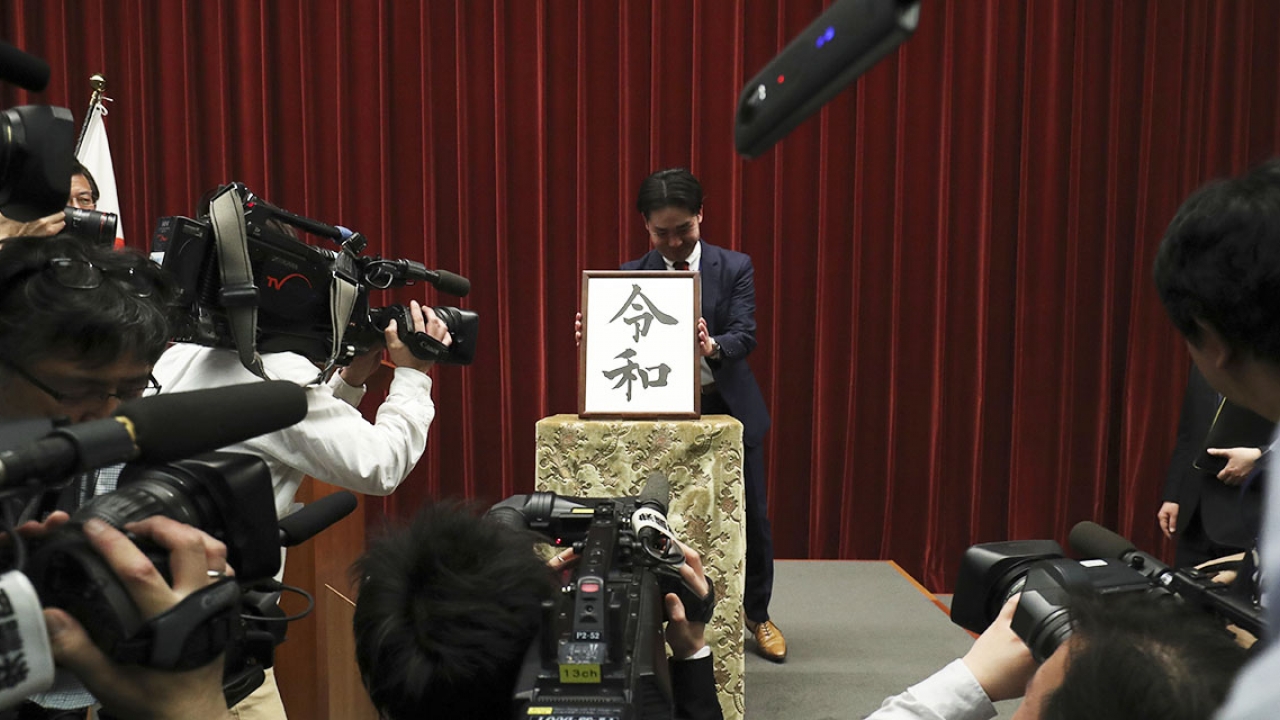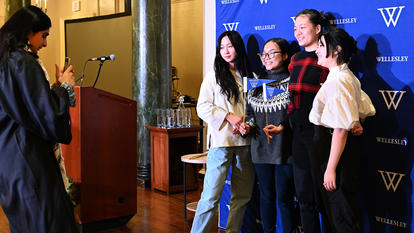Japanese Wellesley Student Discusses the New Imperial Era

Crown Prince Naruhito ascends Japan’s Chrysanthemum Throne on May 1, bringing to a close the 31-year Heisei imperial era of his father, Emperor Akihito. The name of the new era, Reiwa, was chosen from the Manyoshu, a famous collection of Japanese classical poetry. The imperial era name, or gengo, is still used in many official capacities in Japan and is the way many Japanese count years.
Reika Ishii ’20, a Japanese student majoring in economics and psychology, offers her perspective on the new imperial era and the importance of gengo.
Q: What does the new imperial era mean for Japanese citizens?
Ishii: I think it’s an opportunity to reflect back on the previous Heisei era and to make resolutions for the new Reiwa era.
Q: Did the revelation of the new era name incite excitement in Japan?
Ishii: I think it did. A lot of my friends were really excited for the announcement of the new era and posted about it on social media after it was announced.
Q: Do you think the use of gengo is fading in Japan with the adoption of the Western calendar?
Ishii: We still use gengo a lot, especially for official documents. We use it when referring to things such as birth year or graduation year from an institution, but on a daily basis we use the Western calendar.
Q: What does the new imperial name mean to you, specifically the kanji (characters) used for the name?
Ishii: Reiwa means “beautiful harmony.” Although they have different meanings, the new imperial era name Reiwa is really close to my own name, Reika. Even the kanji used are very similar (令和 “Reiwa” and 伶和 “Reika”). It’s weird seeing it on the news and online so often—it’s almost like my own name is suddenly famous.
Q: Does the emperor play a significant role in Japanese politics, or is he more of a figurehead?
Ishii: I see him as more of a figurehead. The constitution states that the emperor is the symbol of the nation and the unity of the people without any political function. The politics are mostly handled by the prime minister and the Japanese parliament, who are chosen through a democratic election.
Q: What is the cultural and historical significance of the announcement?
Ishii: Emperor Akihito is the first emperor to step down in almost two centuries. I hope this will make Japan re-evaluate and make some systematic changes to the traditional Japanese emperor system and be more open to change.
Photo: Members of the media take pictures of the nation's new era name, Reiwa, after Japan's Chief Cabinet Secretary Yoshihide Suga's press conference at Prime Minister's Office in Tokyo on April 1, 2019.



